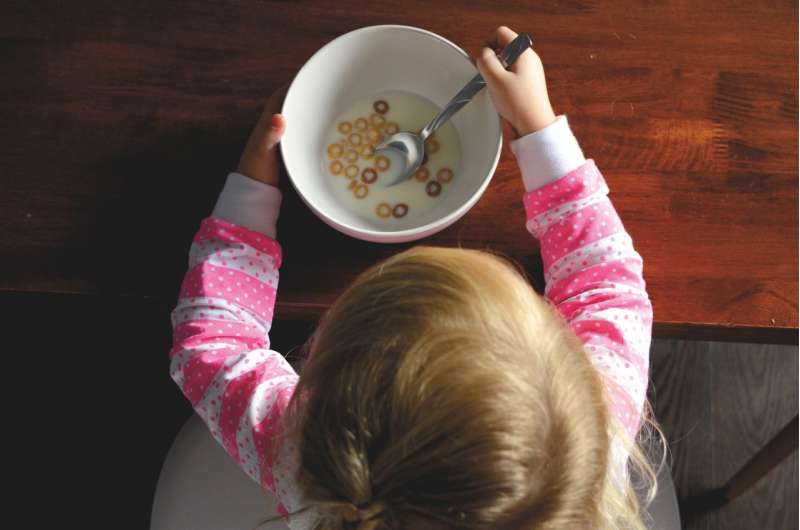This article has been reviewed according to Science X's editorial process and policies. Editors have highlighted the following attributes while ensuring the content's credibility:
fact-checked
trusted source
proofread
Fussy eaters are more likely to experience pica eating disorder, research finds

Children who experience eating difficulties, including undereating, overeating, and fussy eating are more likely to experience pica—an eating disorder characterized by eating non-food items such as paper or soap—finds new research by Cardiff University.
In collaboration with the Center of Excellence for Eating Disorders at the University of North Carolina and the Eating Disorders Research Unit at the Capital Region of Denmark Mental Health Services, a new study has improved the understanding of the prevalence of pica across different stages of childhood and gained insights into other conditions that occur alongside pica. The study is published in the International Journal of Eating Disorders.
Dr. Samuel Chawner, Cardiff University's School of Medicine, said, "Pica is a feeding disorder in which someone eats non-food substances that have no nutritional value, such as paper, soap, paint, chalk, or ice. It's a serious feeding and eating disorder, but research into pica is very limited. In order to improve support for those who experience pica, we need to better the understanding of its prevalence in the population."
The researchers used data from the Avon Longitudinal Study of Parents and Children, an ongoing population-based birth cohort study that started in the 1990s to investigate various factors influencing the health and development of children. The Cardiff researchers analyzed data from over 10,000 caregivers in the Avon study, to investigate the prevalence of pica in the population.
The study showed that pica was most common in children at 36 months, with 2.29% of caregivers reporting pica for their child, and pica was seen to decrease as children aged. It was found that those with autism and developmental delays were more likely to experience pica than those without.
Additionally, the researchers found that pica behaviors may be associated with broader eating difficulties.
"We found that the presence of pica was not related to the child's BMI, and therefore clinicians should screen for pica behaviors in children of all weights and sizes.
"Our findings also showed that children who exhibit undereating, overeating, and food fussiness were more likely to experience pica, and this may represent a group to focus on to monitor potential pica behavior. Children with developmental delays or autism may also benefit from pica screening and diagnosis.
"Our research has enriched our understanding of the prevalence of pica across different stages of childhood in the general population. It also gives us clearer insights into other conditions that co-occur with pica. This will help clinicians to provide better support to children who experience pica, and their caregivers, in the future," added Dr. Samuel Chawner.
"I think this research helps us get one step closer to developing more tailored treatment options for children with pica since we have a better idea of how these behaviors present and persist throughout early childhood," added Dr. Natalie Papini, University of North Carolina.
"While our research has shed light on some of the causes of pica, it's important to stress that not all children who are fussy eaters, overeat or undereat, will develop the condition—a number of factors could be behind eating practices. Any parent who has concerns about their child and their eating should contact their health care provider."
More information: Natalie M. Papini et al, Prevalence and recurrence of pica behaviors in early childhood within the ALSPAC birth cohort, International Journal of Eating Disorders (2023). DOI: 10.1002/eat.24111


















